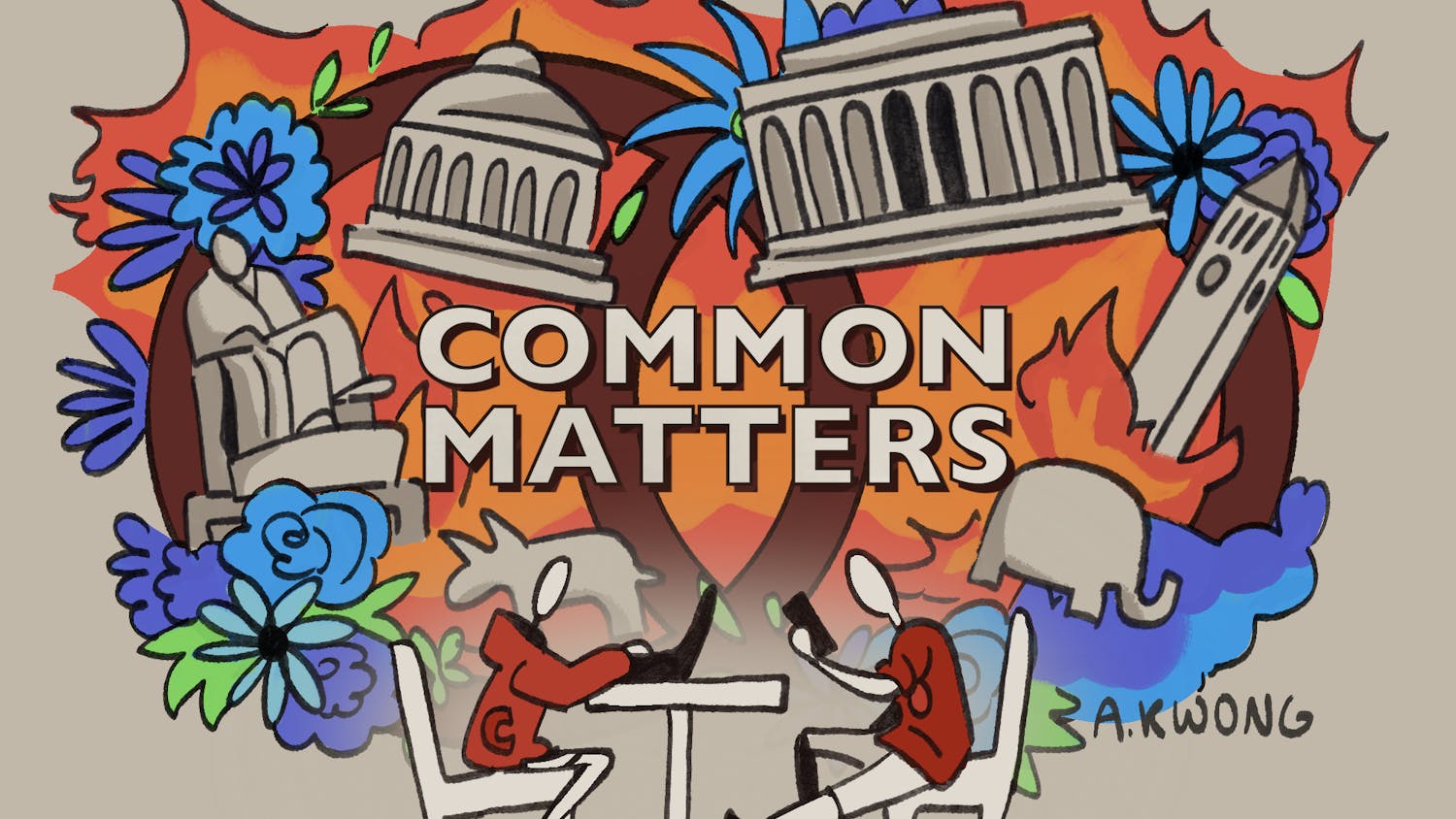My name is Sriram Parasurama and I am a second year PhD student in the graduate field of Horticulture, in the School of Integrative Plant Science. I research how trees in our local forests interact with fungi in the soils and how that interaction affects the web of ecology throughout the ecosystem. I was arrested on Oct. 9 outside of my home for alleged actions at the career fair shut down that took place at the Statler on Sept. 18 and have since then been suspended and banned from campus. I am being punished without due process as I am considered an immediate “danger to public health and safety.” However, in suppressing my voice, the University administration has done the impossible — politicized the apolitical.
The College of Agriculture and Life Science has long been a cornerstone of this University’s popularity and profits, with the plant breeding and veterinary science programs being among the top in the nation. While not a major point of attention across campus life, it does draw the attention of wealthy donors and government representatives, such as Senator Chuck Schumer supporting the development of a new XLEAP (X-ray beamline for Life Sciences, Environmental Sciences, Agriculture and Plant Sciences) facility or Lisa Yang endowing the Wildlife Health Center. Among scientists in these fields, there has long been a reluctance to acknowledge political issues, with many opting to take the so-called “objective” or “unbiased” route. For myself, my studies have always been political: my ability to conduct field work is contingent on Cornell’s historical and ongoing land dispossession through the Morrill Act. Each new generation of scientists has slowly been coming to the realization that their work cannot continue to be meaningful if it occupies an apolitical realm, but have yet to find the spark to act.
This is precisely what the administration has given us through my discipline: a motive to act. The moment I shared the news of my arrest and suspension, graduate students in SIPS found the spark they needed. Many came together to organize their peers to meet with faculty, write letters of support, and express dissent with the University administration. It is an unprecedented level of political activation largely unseen among the scientific community for issues not pertaining to climate. Cornell administration has also been slowly undermining their stability in CALS through failed promises made to Indigenous students in AIISP, an already deeply politicized group. With Indigenous student recruitment at an all time low and Indigenous faculty quitting the program, the collective rage and dissent within CALS has been continuing to mount. The college is a major source of public funding at Cornell and given the increasing pressures and threats to their tax-exemption status from the Committee on Ways and Means, CALS is poised to deal a major blow to the institution’s bottomline, the groundwork for which the administration has laid out for us.
It has been beyond inspiring to watch my peers among SIPS transition from friends to dedicated comrades and political allies. The gravest mistake our administration has made is underestimating the love we have for each other among the plant science community, a group that is committed to studying the means to life. I often find beautiful parallels between the systems I study, the symbiosis of fungi and trees, and the depth of community and genuine relational nature in which the graduate student community works together. When the tree experiences stress, the fungi help uptake nutrients and aid in the recruitment of other microbes to assist. I see the same network among the vast forest of beautiful people in SIPS. There has never been a more passionate, empathetic and driven generation of scientists at Cornell and the administration has lit a flame in all our hearts that cannot be extinguished. We are all waking up to the ultimate responsibility of the scientist — undeterred defense of life and truth. We make a vow in the honest pursuit of knowledge, and like any form of knowledge it comes with a responsibility to act. If we do not act upon the knowledge of this genocide in Palestine, in which upwards of 200,000 Palestinians have been killed as of June 2024 by bombs funded by our own school, then who are we as scientists? As we watch the mass killing of children unfold on our phone screens, who are we as empathetic human beings?
In many ways, I see the University as a microcosm of empire through its mass surveillance, deference to profit, and exploitation of its labor. And, like all empires, it digs its own grave by oppressing its masses in the name of greed and extraction. As we experience the effects of the imperial boomerang in our own institutions, the students are finding the strength and resolve to fight for a free Palestine and for a liberated future full of love, empathy and reciprocity. Those impassioned enough in SIPS are rallying on Friday, Nov. 15 at 3 p.m. outside Mann Library to speak out against the repression of myself and my peers. Will you be there?
Sriram Parasurama is a second-year PhD student in the graduate field of Horticulture, School of Integrative Plant Sciences. He can be reached at sp2322@cornell.edu.











